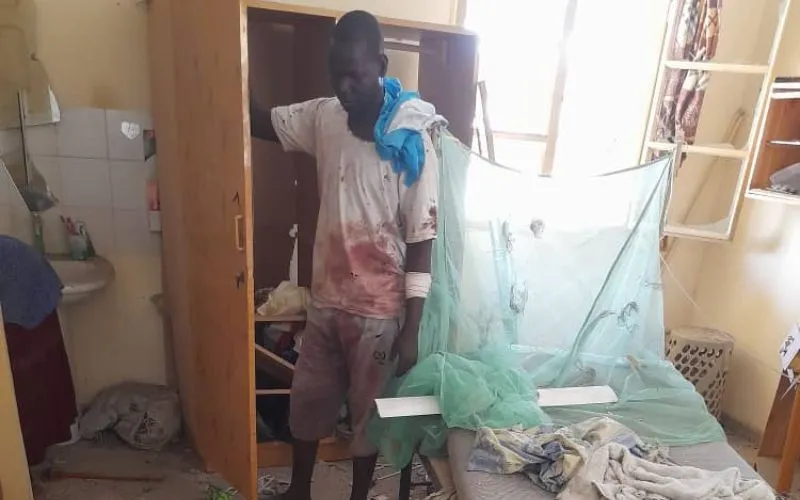 An injured man at Dar Mariam community of the Salesian Sisters in Shajara, about 7 kilometers from Sudan's Capital Khartoum. Credit: Fr Jacob Thelekkadan
An injured man at Dar Mariam community of the Salesian Sisters in Shajara, about 7 kilometers from Sudan's Capital Khartoum. Credit: Fr Jacob Thelekkadan
In the April 15 joint statement titled, “Sudan and its people are left in the shadows – a forgotten conflict for many”, the faith-based actors recognize their work as being “rooted in a long history of solidarity with Sudan, promoting peace, justice and human dignity.”
They highlight ACT Alliance, Caritas Internationalis and local partners as faith-based networks involved in “working together on the frontline of our humanitarian response.”
“Wherever possible, we are also maintaining development programmes to ensure future recovery. At the heart of our joint appeal is support to Sudanese civil society and mutual aid actors who are the backbone aiding their communities and constituencies,” the faith-based actors further say in their two-page statement shared with ACI Africa.
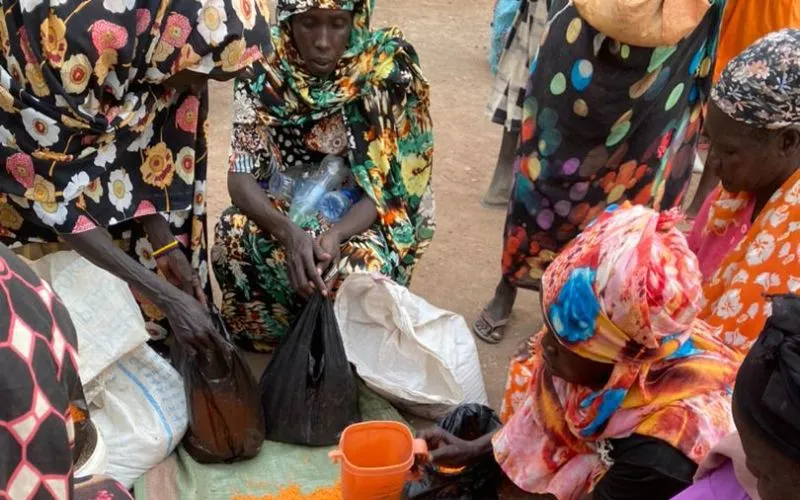 South Sudanese teturnees receiving food relief in Abiemnhom, near the border with war-torn Sudan in March 2024. Credit: Sr. Elena Balatti
South Sudanese teturnees receiving food relief in Abiemnhom, near the border with war-torn Sudan in March 2024. Credit: Sr. Elena Balatti
(Story continues below)
They lament underfunding of “both community-based networks and local civil society organizations” and add that these entities “face extreme risks daily.”
“Despite recognition that local actors have led – often alone - the response for communities affected by famine and multiple humanitarian challenges since April 2023, direct funding and protection remain alarmingly low. Local actors continue to receive less than 1% of international aid,” signatories to the April 15 statement further lament.
They further express their concern about “the widespread attacks on civilians and civilian infrastructure vital to helping people survive, cope and recover from the conflict, including attacks on health clinics, roads and critical water infrastructure.”
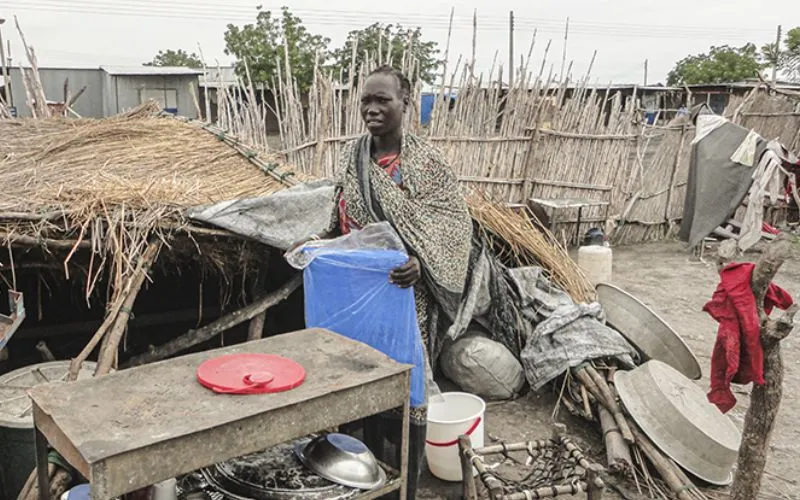 Credit: ACN
Credit: ACN
In the April 15 statement, the faith-based actors recognize and laud “the efforts of Sudanese actors to maintain access, communication and coordination to enable communities affected by conflict and crisis to access aid. Their tireless work to counter hate speech and divisions is essential to prevent the complete breakdown of the social fabric.”
Sudan’s civil war broke out on 15 April 2023. The violent conflict is between the Rapid Support Forces (RSF), the paramilitary force under General Mohamed Hamdan Dagalo, and army units of the Sudanese Armed Forces (SAF) that are loyal to the head of Sudan's transitional governing Sovereign Council, General Abdel Fattah al-Burhan.
It started in Sudan’s capital city, Khartoum, before becoming a full-fledged civil war in the entire Northeastern African nation. It has reportedly resulted in the death of “as many as one hundred and fifty thousand people”; well over 14 million people have been displaced, including to unstable countries such as Chad, Ethiopia, and South Sudan, where they have reportedly overrun refugee camps.
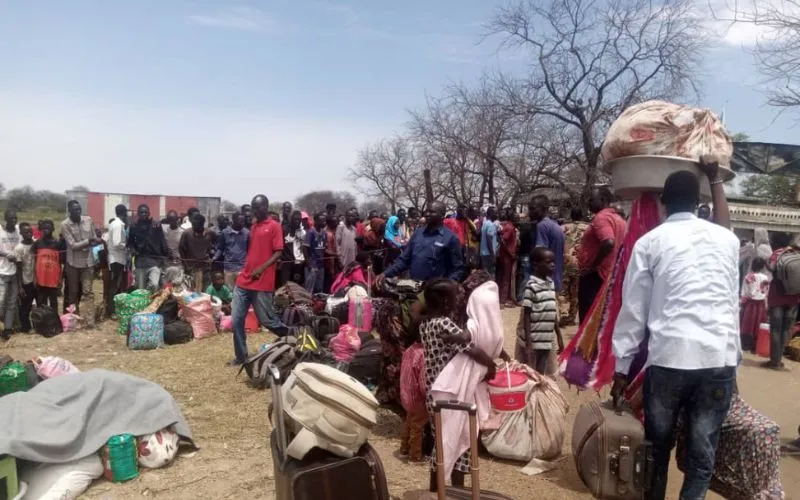 Credit: Caritas Internationalis
Credit: Caritas Internationalis
With over 30 million people in need of humanitarian said, the country has reportedly the highest number of people in need ever recorded; the highest number of internally displaced globally, more than 12 million having fled violence in the country in the last 24 months.
Sudan has also the highest number of people in emergency or catastrophic levels of hunger, “with over 600,000 people living in famine, and 8 million others on the cliff edge”, according to an April 2025 report.
In “recent attacks”, RSF forces have reportedly killed more than 400 people in Sudan’s Darfur region, including nine humanitarian aid workers.
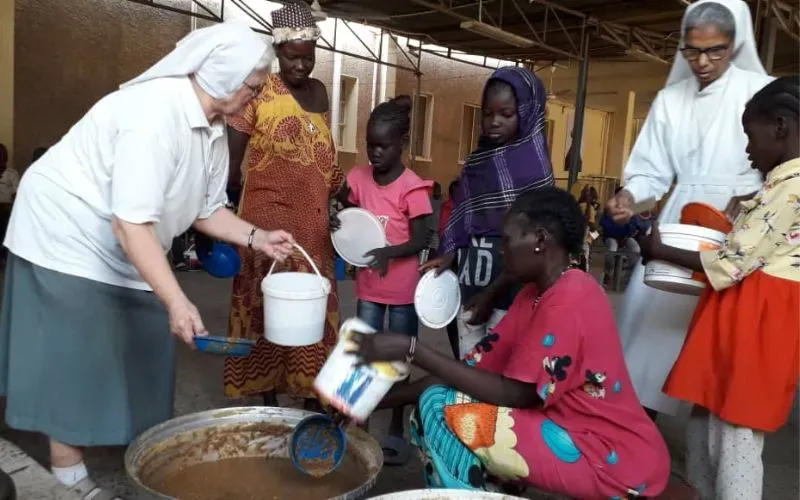 Sisters from the Salesian Sisters in Sudan serve the poor and needy in the midst of a brutal war in Sudan. The sisters commiunity, Dar Mariam, has been a refuge for hundreds, though has damaged by gunfire and bombs. May 2024.
Sisters from the Salesian Sisters in Sudan serve the poor and needy in the midst of a brutal war in Sudan. The sisters commiunity, Dar Mariam, has been a refuge for hundreds, though has damaged by gunfire and bombs. May 2024.
Mediation initiatives for peace are yet to produce positive results as SAF and RSF leaders have failed to agree on a ceasefire while regional and international leaders seem to have continued to take sides in the violent conflict.
In a Tuesday, April 15 report, officials of the UK-based human rights foundation, Christian Solidarity Worldwide, call on the European Union (EU) Foreign Affairs ministers to consider “serious steps” in handling the enablers of Sudan’s civil the war in their April 14-19 meeting.
In the report, CSW officials “urge the ministers and international community to ensure that urgent humanitarian assistance for Sudan is facilitated and that accountability measures that will break the cycles of impunity, especially in Darfur are robustly supported.”
 Credit: Caritas South Sudan
Credit: Caritas South Sudan
CSW has been vocal about the Sudan’s situation since the war broke out in 2023. In the March 27 letter addressed to EU Foreign Ministers, the UK-based Christian Human Rights Foundation and partners urged the Foreign Affairs ministers to include the Northeast African nation “as a full-fledged agenda item” during their ongoing meeting.
On the first day of their April 14-19 meeting, Reuters has reported on April 15 that the EU and member States pledged over 522 million Euros ($592 million) to address the Sudan crisis, with Britain pledging an extra 120 million pounds ($158 million) in aid to the Northeastern African nation.
ACI Africa was founded in 2019. We provide free, up-to-the-minute news affecting the Catholic Church in Africa, giving particular emphasis to the words of the Holy Father and happenings of the Holy See, to any person with access to the internet. ACI Africa is proud to offer free access to its news items to Catholic dioceses, parishes, and websites, in order to increase awareness of the activities of the universal Church and to foster a sense of Catholic thought and culture in the life of every Catholic.
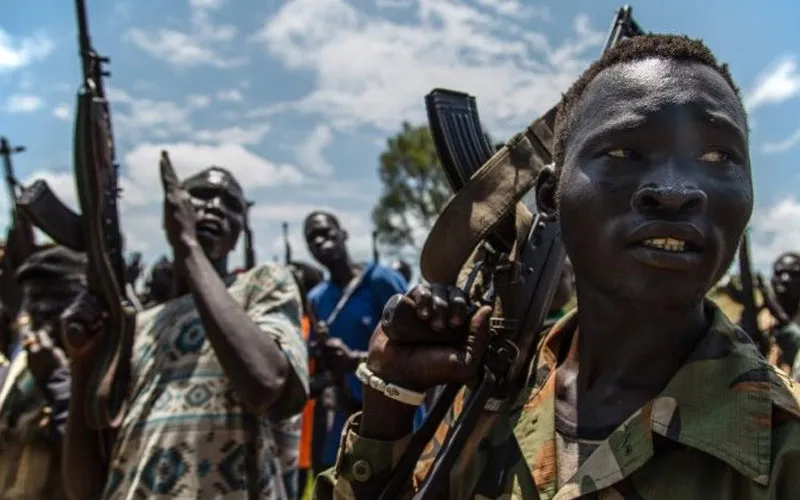 Warring parties in Sudan conflict. Credit: Vatican Media
Warring parties in Sudan conflict. Credit: Vatican Media


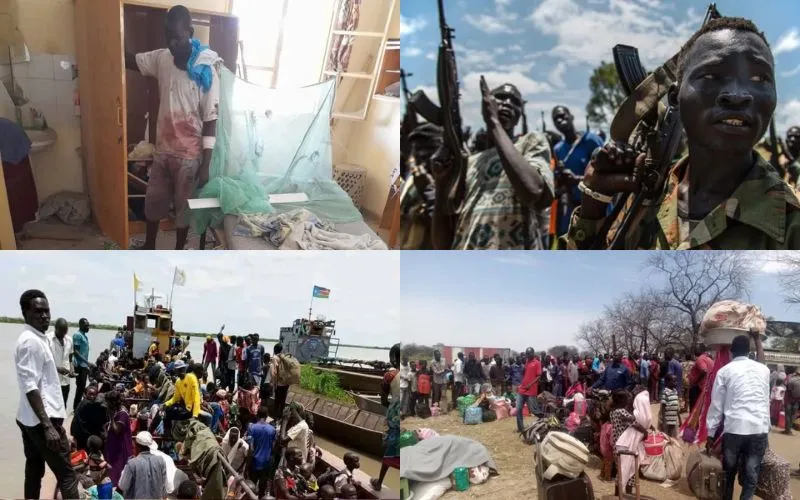
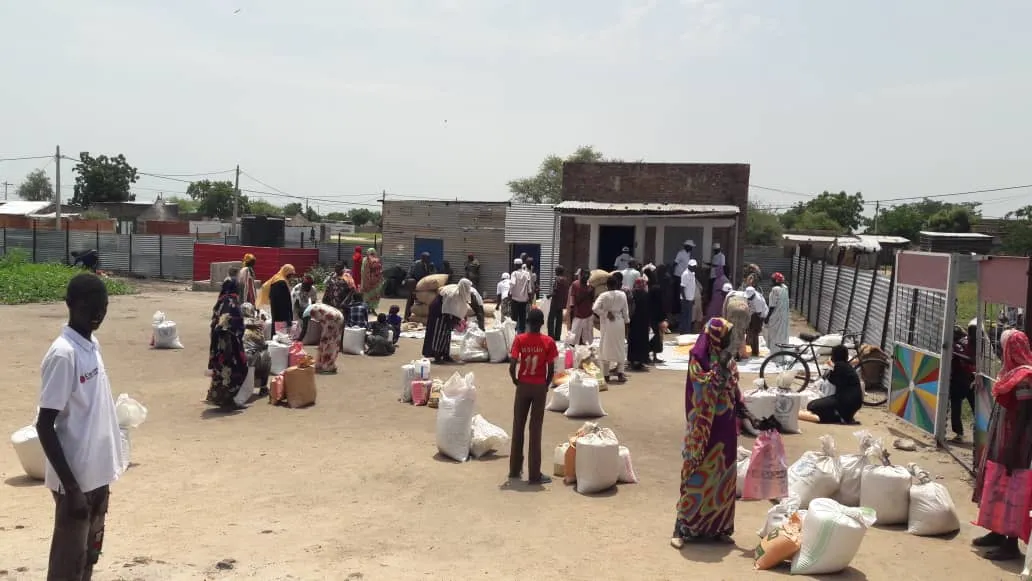 Caritas South Sudan distributing food items to returnees in South Sudan's Renk County. Credit: Joseph Sabu, Caritas South Sudan
Caritas South Sudan distributing food items to returnees in South Sudan's Renk County. Credit: Joseph Sabu, Caritas South Sudan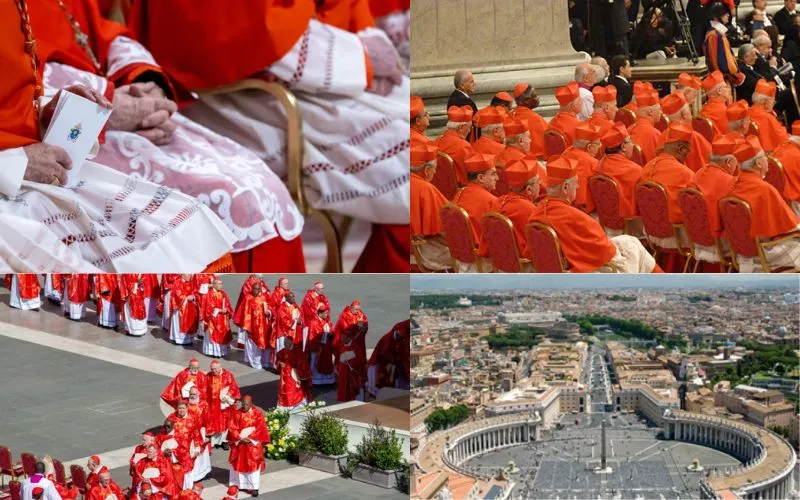
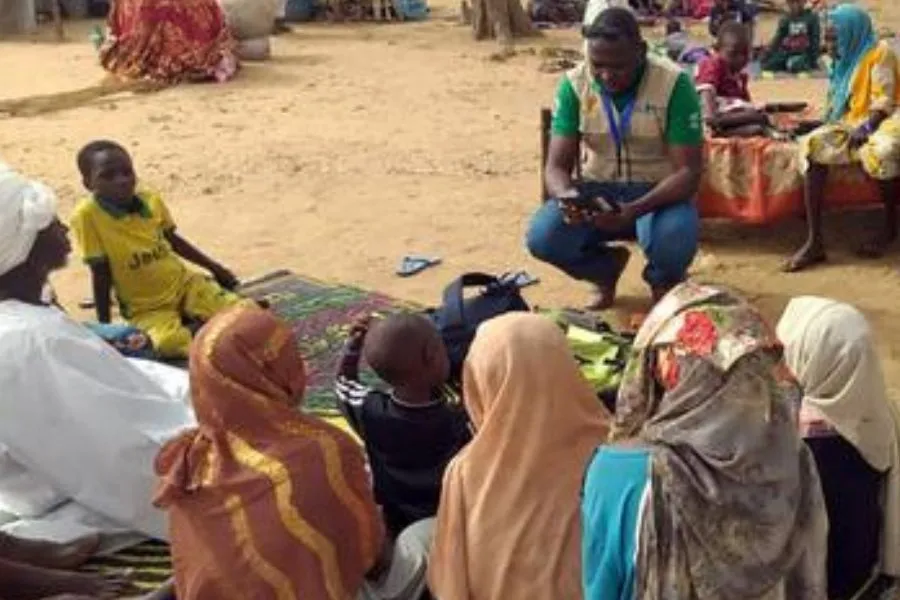 A JRS staff attending some persons fleeing violence in Sudan. Credit: JRS
A JRS staff attending some persons fleeing violence in Sudan. Credit: JRS An injured man at Dar Mariam community of the Salesian Sisters in Shajara, about 7 kilometers from Sudan's Capital Khartoum. Credit: Fr Jacob Thelekkadan
An injured man at Dar Mariam community of the Salesian Sisters in Shajara, about 7 kilometers from Sudan's Capital Khartoum. Credit: Fr Jacob Thelekkadan South Sudanese teturnees receiving food relief in Abiemnhom, near the border with war-torn Sudan in March 2024. Credit: Sr. Elena Balatti
South Sudanese teturnees receiving food relief in Abiemnhom, near the border with war-torn Sudan in March 2024. Credit: Sr. Elena Balatti Credit: ACN
Credit: ACN Credit: Caritas Internationalis
Credit: Caritas Internationalis Sisters from the Salesian Sisters in Sudan serve the poor and needy in the midst of a brutal war in Sudan. The sisters commiunity, Dar Mariam, has been a refuge for hundreds, though has damaged by gunfire and bombs. May 2024.
Sisters from the Salesian Sisters in Sudan serve the poor and needy in the midst of a brutal war in Sudan. The sisters commiunity, Dar Mariam, has been a refuge for hundreds, though has damaged by gunfire and bombs. May 2024. Credit: Caritas South Sudan
Credit: Caritas South Sudan


